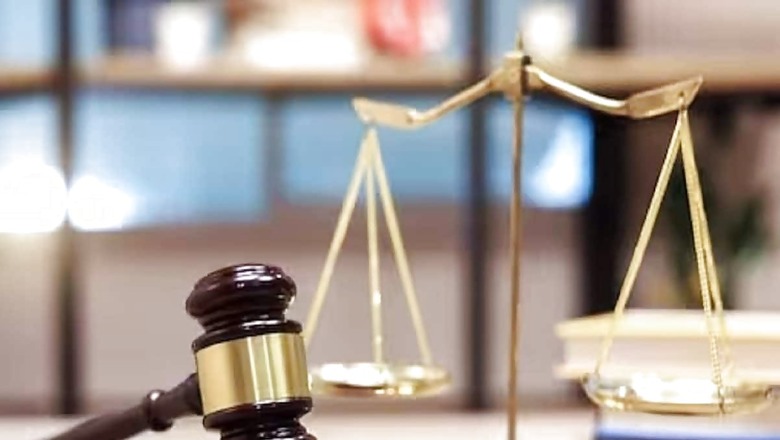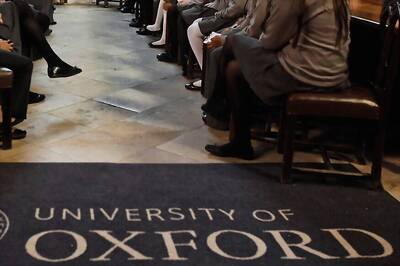
views
One of the disclaimers commonly found in the bio of the X (formerly Twitter) is “retweets are not endorsements”. However, Delhi Chief Minister Arvind Kejriwal has to face a defamation case for retweeting a video on the social media platform which made certain allegations related to the BJP’s IT Cell. While the Supreme Court on February 26 directed the trial court proceedings in a defamation case against Kejriwal to be temporarily halted, two issues have come to the fore, first, does sharing defamatory content on social media attract punishment? Second, what is the use and viability of the law of defamation?
It is important to recall that in past also the Delhi Chief Minister had to face a defamation case in 2015 when he allegedly made some “scandalous” remarks against BJP leader Arun Jaitley in connection with purported financial irregularities in the Delhi and District Cricket Association (DDCA). Kejriwal had to tender an apology to get acquitted in the case.
It is also important to recall that Congress leader Rahul Gandhi lost his Lok Sabha seat as he was convicted and sentenced to two years of imprisonment in a criminal defamation case. He was accused of defaming a particular community by branding them “thieves”. A case was filed against him in Surat by BJP MLA Purnesh Modi.
‘Retweeting Does Not Always Mean Endorsement’
As reported by The Indian Express, a Bench of Justice Sanjiv Khanna and Justice Dipankar Datta said “retweeting” need not always mean endorsement. “If it is an endorsement, then it may have its own consequences,” Justice Khanna said. “The other way to look at it is, you found something on the Internet or the website, and you are just sharing that information,” the Bench added.
Provisions Related to Defamation in IPC
There are two types of defamation — criminal and civil. Defamation in civil law comes under the ambit of the law of torts whereas defamation, as in criminal law, is codified under section 499 of IPC.
Defamation is defined in the Indian Penal Code (IPC) in four sections.
Section 499 of IPC states whoever, by words either spoken or intended to be read, or by signs or by visible representations, makes or publishes any imputation concerning any person intending to harm, or knowing or having reason to believe that such imputation will harm, the reputation of such person, is said, except in the cases hereinafter excepted, to defame that person.
Section 500 states whoever defames another shall be punished with simple imprisonment for a term which may extend to two years, or with a fine, or with both.
Section 501 states whoever prints or engraves any matter, knowing or having good reason to believe that such matter is defamatory of any person, shall be punished with simple imprisonment for a term which may extend to two years, or with fine, or with both.
Section 502 states whoever sells or offers for sale any printed or engraved substance containing defamatory matter, knowing that it contains such matter, shall be punished with simple imprisonment for a term which may extend to two years, or with fine, or with both.
The IPC also provides explanations of the above-mentioned instances of defamation which are enumerated below.
Explanation 1: It may amount to defamation to impute anything to a deceased person, if the imputation would harm the reputation of that person if living, and is intended to be hurtful to the feelings of his family or other near relatives.
Explanation 2: It may amount to defamation to make an imputation concerning a company or an association or a collection of persons as such.
Explanation 3: An imputation in the form of an alternative or expressed ironically, may amount to defamation.
Explanation 4: No imputation is said to harm a person’s reputation, unless that imputation directly or indirectly, in the estimation of others, lowers the moral or intellectual character of that person, or lowers the character of that person in respect of his caste or of his calling, or lowers the credit of that person, or causes it to be believed that the body of that person is in a loathsome state, or in a state generally considered as disgraceful.
285th report of the 22nd Law Commission
The 22nd Law Commission which submitted its 285th report last month has recommended that criminal defamation should be retained within the scheme of criminal laws in India. The argument made by the Law Commission for retaining the Defamation Law is that the right to reputation is derived from Article 21 of the Constitution which guarantees the right to life and personal liberty and that is why it has to be protected.
Bharatiya Nyaya Sanhita
Bharatiya Nyaya Sanhita which will replace the IPC has provisioned community service as a form of punishment for defamation.
Law Commission Cites Key Judgments
In the Board of Trustees of the Port of Bombay v. Dilipkumar Raghavendranath Nadkarni, it has been ruled that the right to reputation is a facet of the right to life of a citizen under Article 21 of the Constitution.
In the case of Kiran Bedi v. Committee of Inquiry, the Supreme Court while observing that the reason for the importance attached with regard to the matter of safeguarding the reputation of a person being prejudicially affected is not far to seek, reproduced a passage from DF Marion v. Davis which says, “The right to the enjoyment of a private reputation, unassailed by malicious slander is of ancient origin, and is necessary to human society. A good reputation is an element of personal security, and is protected by the Constitution equally with the right to the enjoyment of life, liberty and property.”
However, in R. Rajagopal v. State of Tamil Nadu the Supreme Court tried to find a balance between the freedom of press and the right to privacy.
The conflict between freedom of speech and expression and defamation was finally adjudicated by a two-judge bench of the Supreme Court in Subramanian Swamy v. Union of India, wherein the court upheld Sections 499 and 500 of IPC that defines the offence of defamation and provides punishment for it, respectively. The court held that defamation is a reasonable restriction on the right to freedom of speech and expression under Article l9(2) of the Constitution of India.
The court, commenting on the right to reputation being a part of Article 21, stated that, “Reputation being an inherent component of Article 21, we do not think it should be allowed to be sullied solely because another individual can have its freedom. It is not a restriction that has an inevitable consequence which impairs the circulation of thought and ideas……. the balance between the two rights needs to be struck. “Reputation of one cannot be allowed to be crucified at the altar of the other’s right of free speech”.


















Comments
0 comment